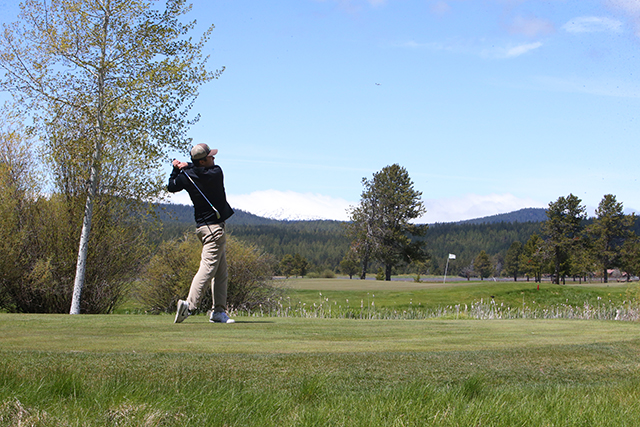Alan Jones to perform in Bend
Published 12:00 am Thursday, December 22, 2016

- Portland drummer, composer and educator Alan Jones leads a sextet that includes current and former students from his academy. 
For many working musicians, there’s often a synergistic relationship between teaching and playing.
Portland jazz drummer Alan Jones takes that even further. For the last couple years, Jones has performed with a sextet made up of students from his Alan Jones Academy of Music, which he founded 10 years ago.
“I’ve spent most of my life traveling and playing in Europe and Asia and East Coast — I’ve lived all over the place,” Jones said recently from his home. “To come home to Portland and settle in one place was a real change in life for me. And so one idea I had was that, well, if I’m gonna stay here for a while, I want musicians — lots of them — who think about music the way that I do and the way that the larger world scene thinks about music. So the concept was to work with talented people and kind of create a real-world environment where they could grow into the music in the same way that I did, by playing with other people and touring — sort of on-the-job experience.”
These young players — tenor saxophonist Nicole Glover, bassist Jon Lakey, alto saxophonist John Nastos, trumpeter Charlie Porter and pianist Greg Goebel — have brought a new energy to Jones’ compositions and playing. The group has since toured around the globe and released a studio album, “Storyline,” in 2015.
“Two of these players, Nicole Glover and Jon Lakey, are students — they actually still are,” Jones said. “Nicole’s living in New York (City) and Jon teaches at my academy. Yet they’ve become two of my favorite players to play with, so I put the band together based on that sort of principal. Everyone in the band is young, younger than me, so it has a different spirit to it.”
Jones will bring the new sextet (with Joe Manis filling in for Nastos) to Bend for the first time Friday and Saturday, when he plays the Christmas Eve edition of the Riverhouse Jazz series at the Riverhouse on the Deschutes. His music education endeavors also helped him land the gig: One of his students at the academy is series founder Marshall Glickman’s son.
Along with material from “Storyline,” Jones will tackle compositions from throughout his 20-plus year career leading various bands, often sextets, in the Pacific Northwest and throughout Europe. He’s also working on new songs with the sextet for a Buddy Rich tribute set the group will perform at next year’s Portland Jazz Festival. But as always, Jones will cater the set to the venue, and may not decide what to play until he’s there playing it.
“I’ll choose the things that feel to me like it fits the spirit of the space and the crowd, so some of it will be just chosen in the moment based on that feeling of where the music needs to go and what the audience is responding to and how they’re responding,” Jones said. “So I always choose sets based on that — let’s call it collective participation in music. … When you’re playing you can tell when the audience is getting inside the music, and you can tell when you’re starting to alienate them, and so I make my choices on the spur of the moment based on that.”
This philosophy helped guide the writing and recording process behind “Storyline.” Jones is quoted on the indiegogo.com crowdfunding page for the project: “I want to remove that imaginary line between performer and audience. I want to tell stories, and hear stories back from the musicians and the audience both.”
Jones has always been an advocate for storytelling in music, even in the instrumental jazz world. Without lyrics, the story isn’t explicit; rather, Jones thinks of his compositions as being “like a soundtrack to a movie.”
“Without the music, the experiences that you’re having or you’re seeing and that you’re living don’t have the same impact,” he said. “So you add music to that movie and all of a sudden things are much more suspenseful and much more apt to make you cry. It’s a way that music works on the emotions of people, so if that’s true for a movie, it can be just as true for your own life.”
Songs range from the more straight-ahead ballad “The Road to Maupin,” named for the Oregon town on the Deschutes River; to album opener “Rumpus,” which features chanting and melodies inspired by Pygmy music.
“I’ve been kind of obsessed with that music for some time, and so I was looking at how their melodic lines were interwoven with others,” Jones said. “And so I took the spirit of those — what happens in that is that one person sings a kind of repeated melodic idea over and over again, and then someone else sings a contra-puzzle melodic idea that goes with that, maybe fills in some of the spaces in the first melodic idea. And then another is added and another is added until it’s like a cacophony. It’s fascinating music and it involves dance, of course, and percussion. So I had wanted to capture the spirit of that with the horns doing the vocal parts, but then it just sort of evolved and we started singing the horn parts anyway.”
Composing has always come naturally to Jones. He got his start in music early, first picking up ukulele as a young kid (“My mom wouldn’t give me a guitar because my hands wouldn’t fit it”). He also plays piano, bass, guitar, saxophone and trumpet, but said he always wanted to be a drummer.
He wrote his first song at 14 or 15, and soon after began delving seriously into jazz. The Berklee College of Music graduate has studied with Elvin Jones and Art Blakey, and played extensively with bassist Leroy Vinnegar, among many others.
“The way that the other instruments (I play) informed my music is substantial,” he said. “You can’t really be a drummer without singing; you can’t be a drummer without understanding harmony and how to play the piano. I mean, you can be a drummer — you can hit stuff — but you cannot be a musician in a band at a high level without knowledge of the music itself. So those other instruments are the ways in which I learn about and continue to learn about what the music is.”






